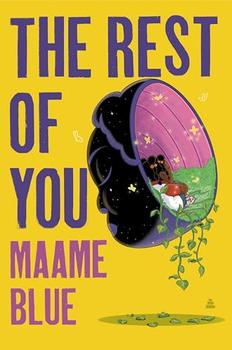Summary | Excerpt | Reading Guide | Reviews | Beyond the Book | Readalikes | Genres & Themes | Author Bio

The door is strange and pretty and something that the boy does not have words for and does not know if there are words for, even fancy French expressions.
Somewhere in the street an unseen dog barks but it sounds distant and abstract. The sun moves behind a cloud and the alley feels longer and deeper and darker, the door itself brighter.
Tentatively, the boy reaches out to touch the door.
The part of him that still believes in magic expects it to be warm despite the chill in the air. Expects the image to have fundamentally changed the brick. Makes his heart beat faster even as his hand slows down because the part of him that thinks the other part is being childish prepares for disappointment.
His fingertips meet the door below the sword and they come to rest on smooth paint covering cool brick, a slight unevenness to the surface betraying the texture below.
It is just a wall. Just a wall with a pretty picture on it.
But still.
Still there is the sensation tugging at him that this is more than what it appears to be.
He presses his palm against the painted brick. The false wood of the door is a brown barely a shade or two off from his own skin tone, as though it has been mixed to match him.
Behind the door is somewhere else. Not the room behind the wall. Something more. He knows this. He feels it in his toes.
This is what his mother would call a moment with meaning. A moment that changes the moments that follow.
The son of the fortune-teller knows only that the door feels important in a way he cannot quite explain, even to himself.
A boy at the beginning of a story has no way of knowing that the story has begun.
He traces the painted lines of the key with his fingertips, marveling at how much the key, like the sword and the bee and the doorknob, looks as though it should be three-dimensional.
The boy wonders who painted it and what it means, if it means anything. If not the door at least the symbols. If it is a sign and not a door, or if it is both at once.
In this significant moment, if the boy turns the painted knob and opens the impossible door, everything will change.
But he does not.
Instead, he puts his hands in his pockets.
Part of him decides he is being childish and that he is too old to expect real life to be like books. Another part of him decides that if he does not try he cannot be disappointed and he can go on believing that the door could open even if it is just pretend.
He stands with his hands in his pockets and considers the door for a moment more before walking away.
The following day his curiosity gets the better of him and he returns to find that the door has been painted over. The brick wall whitewashed to the point where he cannot even discern where, precisely, the door had been.
And so the son of the fortune-teller does not find his way to the Starless Sea.
Not yet.
Excerpted from The Starless Sea by Erin Morgenstern. Copyright © 2019 by Erin Morgenstern. All rights reserved. No part of this excerpt may be reproduced or reprinted without permission in writing from the publisher.




Too often we enjoy the comfort of opinion without the discomfort of thought.
Click Here to find out who said this, as well as discovering other famous literary quotes!
Your guide toexceptional books
BookBrowse seeks out and recommends the best in contemporary fiction and nonfiction—books that not only engage and entertain but also deepen our understanding of ourselves and the world around us.